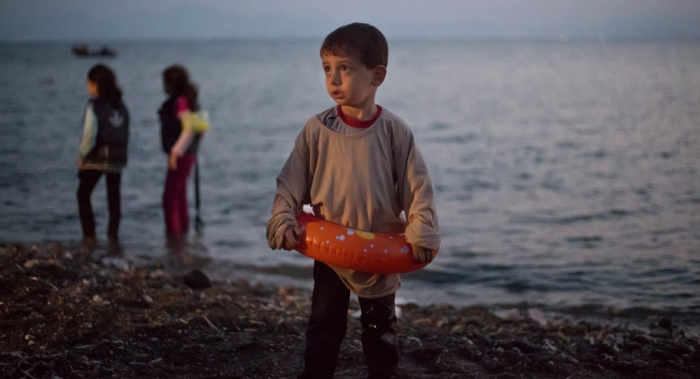It is hard not to see the misery of the Syrians as a powerful and expressive slap on the face and poke in the eyes, going well beyond the Syrian nation to the vast lands of refuge and their crossing points. It is hard not to see Bashar al-Assad as the primary manufacturer of this pain, through death and displacement and humiliation, and as one who is adept at nothing but causing his citizens pain. But it is also hard not to see the preposterousness which characterizes the world’s response to the misery of Syrians, both those residing there and the refugees, as being primarily responsible. It is a mark of shame upon our humanity in general and upon its strength and its capacity.
With regards to this humanitarian drama — the most terrifying since World War Two — it is well understood that a state of gloominess and pessimism prevails among Syrians and those who sympathize with them in their tragedy. Yet on the other hand, it is hard not to see this wavering humanitarianism as a mark of shame as well.
In addition, this gloominess has transformed into a firm position announcing that humanity’s doors are shutting in their faces as the doors of politics are likewise shut. This could strengthen the blend composed of wounded national romanticism and predatory fundamentalist nihilism, both of which have deep traditions among us.
But even with the Syrian mark of shame upon the world’s brow — as well as other shameful marks like the ascent of Donald Trump, the popularity of some extremist right-wing European forces, and the injustice in distributing the wealth of globalization — there are still other spaces left. A Muslim mayor has been elected in London at the peak of Islamophobia, and before that an African-American candidate with Muslim roots was elected president of the United States, regardless of one thinks of his foreign policy and stance on Syria. In contrast to the racist positions toward refugees, some popular and brilliant reactions have appeared, as have some brave policies, like the one pursued by German Chancellor Angela Merkel.
In other words, the history book has not been closed, and its final chapter has not been written. The war continues on many fronts and the possibilities of making policy and changing administrations and governments through elections remain always open.
Naturally, this does not put an end to Syrians’ current misery, but it could prevent us from looking only at the marks of shame, repeated in the theory established by the Palestinian revolution when it stressed that the position of the world’s nations will be determined in light of their position on the Palestinian issue.
This theory did not lighten the misery of the Palestinians and may put the one who believes it into a conflict preventing him from seeing the world as it is, and determine alignment in light of criteria pertaining primarily to the citizens of the concerned country. And so, in light of the single-issue theory, many Arabs could sympathize with the Conservatives against the Labourites in Britain and with the DeGaullists against Socialists in France and with the Republicans against the Democrats in the United States, believing the first ones to be “friends of the Arabs” while their rivals are “friends of Israel.”
Today it is feared that Recep Tayyip Erdogan, “friend of the Syrian people,” seems to be stirring a problem which must be considered and confronted despite our suffering. The fact is that a problem like this affects both sides of the relationship and is not limited to simply mourning the world: how, on one hand, can developed parties in our countries be pushed toward a more moral position around the Syrian tragedy which is also more aware of tyranny and its centralization, and how, on the other hand, can revolutionary action in Syria and anywhere else be promoted to both fight tyranny and embrace the sort of progress that would attract the world?
The argument that one cannot but resort to is that there is no other world more moral or humane where we can flee.
This article was translated and edited by The Syrian Observer. Responsibility for the information and views set out in this article lies entirely with the author.


